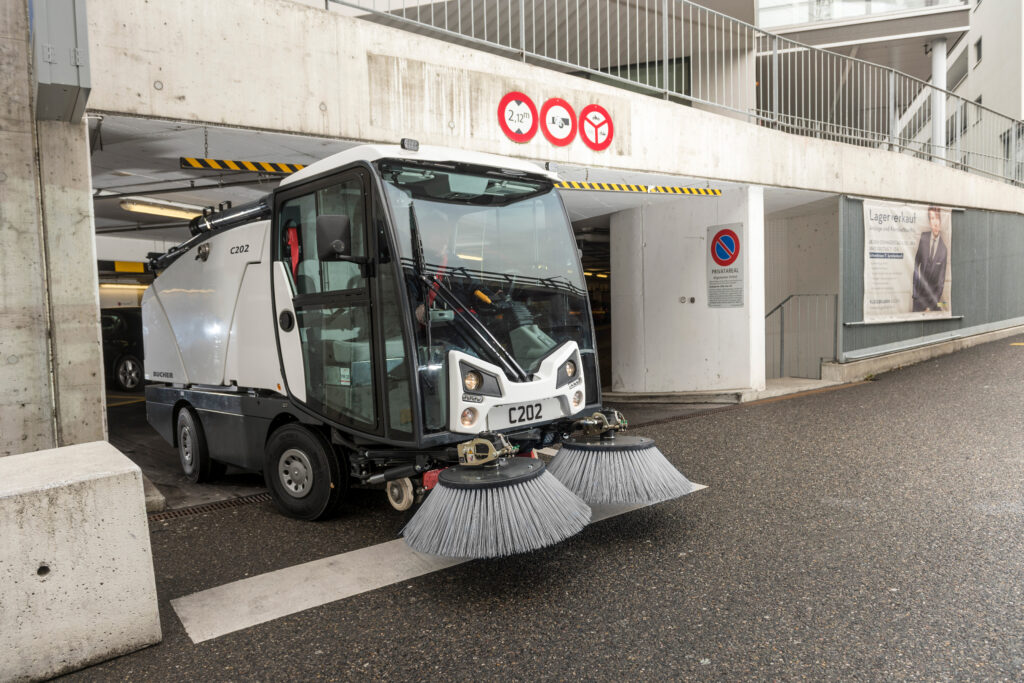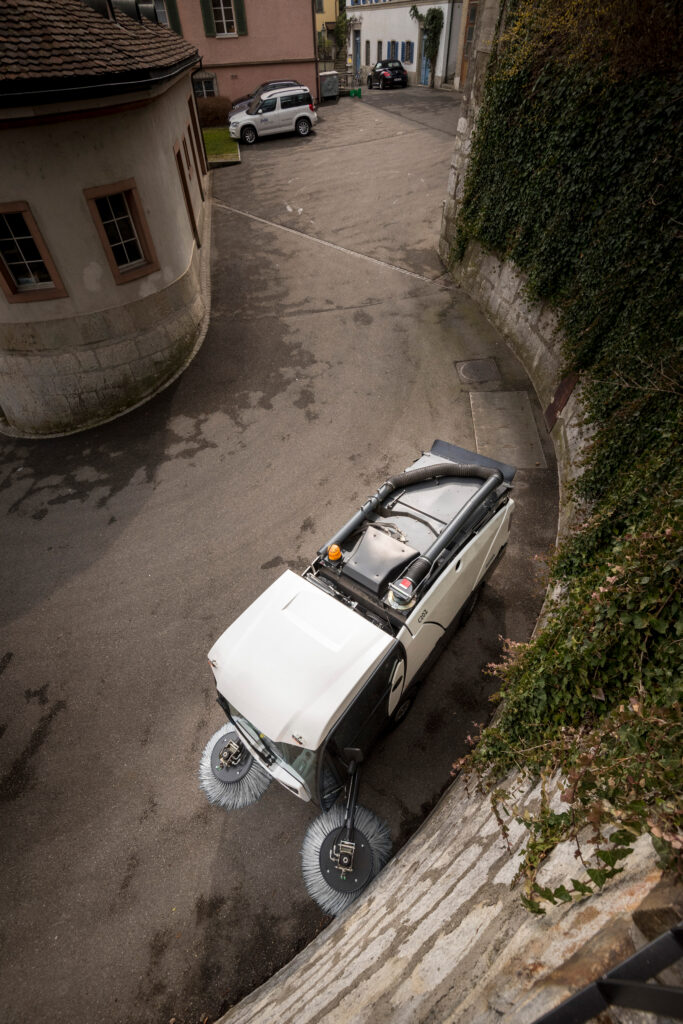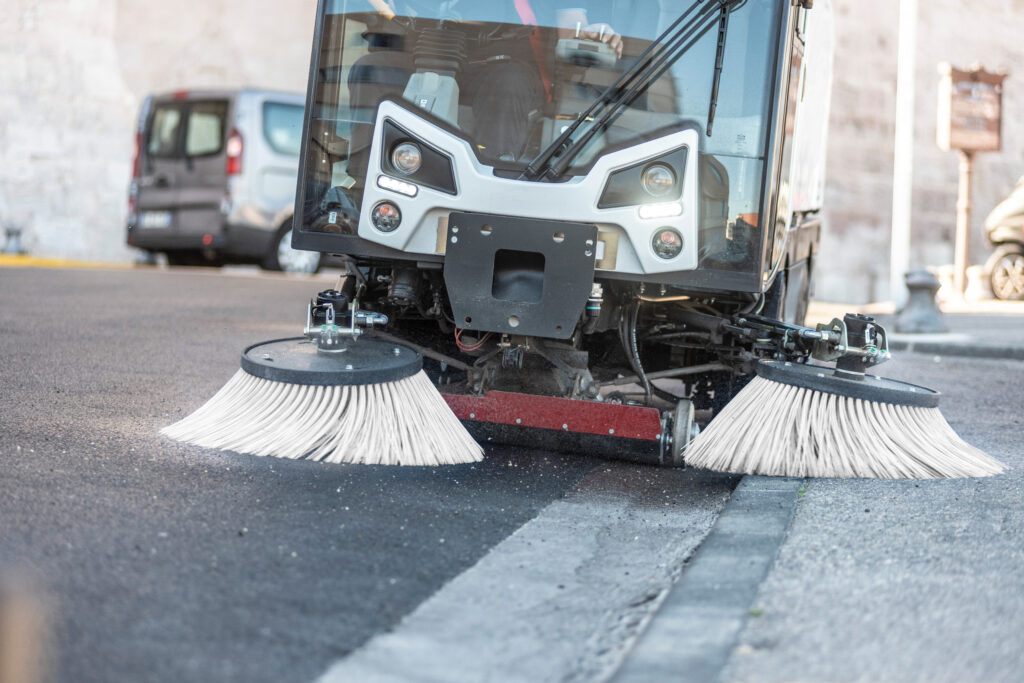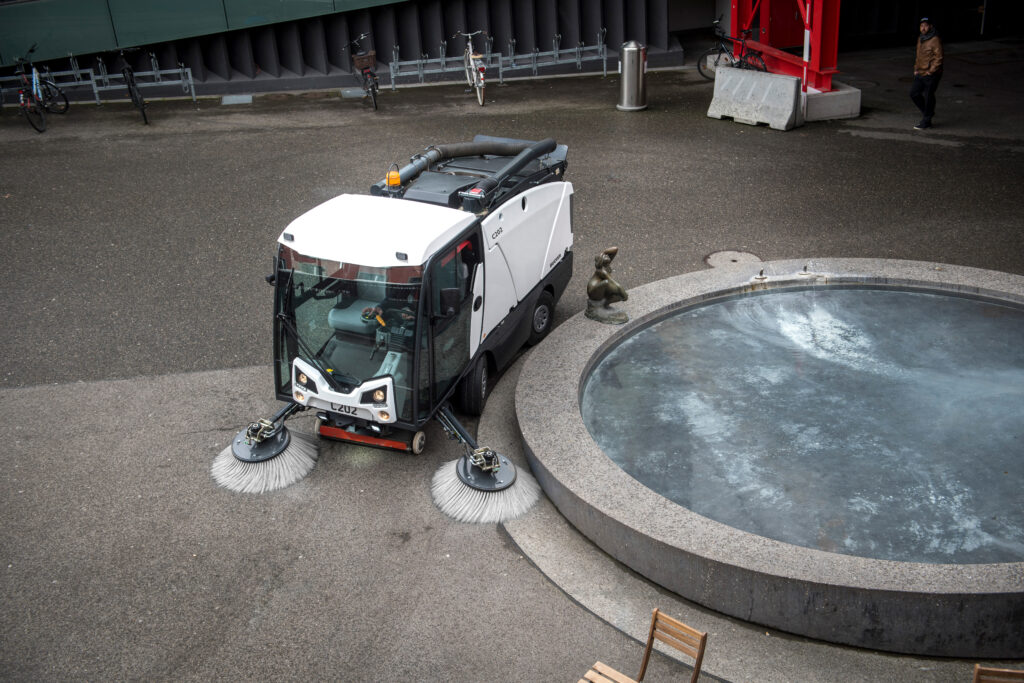With road dust accounting for up to 10% of particulate matter pollution in urban areas, road sweeping is a low-tech, efficient and affordable solution for improving UK air quality, writes Ben Williams from Bucher Municipal.
Air pollution is a significant environmental challenge and public health concern in the UK, and there is a growing need for effective measures to reduce levels of harmful particulate matter in our air. Still, one simple, low-tech solution that can contribute to cleaner air is often overlooked: road sweeping.
Road transport is a leading contributor to air pollution, with vehicles emitting harmful pollutants such as nitrogen oxides (NOx), particulate matter (PM) such as PM2.5 and PM10, and carbon monoxide (CO), which have a range of adverse health impacts. Many cities and towns in the UK have implemented low-emission zones and congestion charges to reduce emissions, but what about the emissions already on our roads?
Impact of road sweeping on air pollution
Road sweeping is a simple, effective way to remove dirt, dust, and debris from roads, pavements, and other surfaces. Removing this road surface dirt and debris positively impacts air quality and public health. The European Commission found that road dust accounts for up to 10% of total PM emissions in urban areas. Further studies have shown that these airborne particles from traffic and other sources can contribute to various health problems, including respiratory and cardiovascular diseases.
According to the World Health Organisation, air pollution is responsible for an estimated seven million premature deaths each year worldwide.
One of the main benefits of road sweeping is that it helps prevent the build-up of harmful particulate matter on streets, reducing public exposure to harmful pollutants, particularly in areas with high traffic levels. Sweeping can also reduce the amount of dust that enters buildings, improving indoor air quality.
A study conducted in London found that regular road sweeping can substantially reduce particulate matter levels, with a 10% decrease in PM10 levels and a 16% decrease in PM2.5 observed in some areas. At the same time, The Environmental Research Group at King’s College London found that road sweeping significantly impacted PM10 and PM2.5 concentrations, reducing PM10 concentrations by up to 33% and PM2.5 concentrations by up to 29%.
Road surfaces accumulate other pollutants such as nitrogen dioxide (NO2) and volatile organic compounds (VOCs). A study led by the University of Birmingham examined the effect of road sweeping on NO2 concentrations in Birmingham and discovered that it could reduce NO2 concentrations by up to 10% and black carbon (a significant contributor to climate change and a potent air pollutant that causes respiratory issues) by up to 33%. In addition, sweeping removes oil and other hydrocarbons on the road surface and reduces the amount of heavy metals such as lead, cadmium, and zinc by up to 85% (MGBA, 2019).
By removing pollutants from road surfaces, road sweeping prevents them from entering the air. When vehicles drive over dirt and debris on the road, it becomes airborne and contributes to air pollution. By removing these materials before they become airborne, road sweeping prevents the release of pollutants into the air. This is especially important in locations with high traffic levels, where even slight pollution declines can significantly impact air quality.
The benefits of road sweeping on air quality are not limited to urban areas. Rural areas also benefit from road sweeping, as dirt and debris accumulate on country roads, contributing to air pollution. When road dust is left to build up, it can wash into stormwater drains and eventually into rivers and streams. A study by the National Trust found that road sweeping helps reduce the amount of nitrogen and phosphorus that enters rivers and streams, improving water quality. These pollutants lead to algal blooms, harming fish and other aquatic life.
Regular road sweeping is a simple yet effective way to improve air quality in the UK. By removing dirt, dust, and debris from our streets, we can reduce the amount of harmful particulate matter in the air and improve the health of residents. With the continued focus on reducing air pollution, it is essential to explore all possible solutions, and road sweeping is undoubtedly worth considering.







